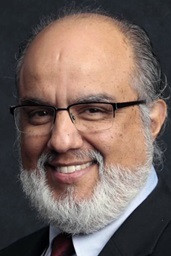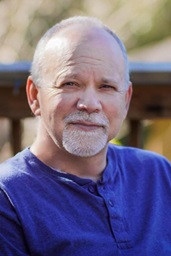In the 20 years since its founding, the Christian-related Amity Foundation has expanded its social outreach programs in China to includeeducation for migrant children, assistance for the disabled and support for people withHIV/AIDS.
But many church members in the United States know the organization because of theAmity Teachers Program, which remains an important part of its work, according to ZhangLiwei, the executive in charge of international relationships.
In fact, he is issuing a challenge to U.S. churches to increase their participationin the teachers program, which has dwindled from a high of 49 teachers from the UnitedStates in 1987 to 16 U.S. teachers this year.
“We still have a huge need for both long-term and short-term teachers,” Liweisaid.
He and five other Amity staff executives met June 13 with staff of the UnitedMethodist Board of Global Ministries in New York during the first-ever visit of anofficial Amity delegation to North America. Qiu Zhonghui, Amity’s chiefexecutive, led the delegation.
Founded in 1985, Amity emphasizes “people-to-people contact” and Christianinvolvement in meeting the needs of Chinese society. Whenever possible, theorganization encourages local Christians and congregations to reach out directly tothose in need in their communities.
During 2004, most of Amity’schurch-related project work involved HIV/AIDS prevention and awareness education in the Yunnan and Henan provinces. But there also are church-run clinics and hospitals, homes for the elderly, child welfare projects and community development projects.
Educational programs include Amity teachers and the short-term summer English program, assistance to primary school dropouts and migrant children, domestic faculty development and legal aid.
Besides the HIV/AIDS prevention and medical support, other medical programs include training for doctors, gynecological disease prevention and treatment, a mobile medical team and support for orphans.
Blindness prevention and special education is a major emphasis, according to She Hongyu, who directs that division. She thanked the Global Ministries staff for the board’s support, which helped the organization provide 400 cataract operations last year and implement a new project for young, visually-impaired children this year. Services for the disabled remain a huge need in China, she added.
Other programs focus on disaster relief and rehabilitation work, rural development and social welfare.
While the projects are locally based, 98 percent of the funding for Amity’s work comes from overseas, according to Liwei. North American funding accounts for 18 percent of the total, while European sources contribute 55 percent. International partners monitor and evaluate projects and sometimes conduct workshops for Amity.
Other project funders are the local partners, which includes local governments, and the recipients themselves. “In most cases, they (recipients) will make contributions by labor force and materials,” he explained.
The length of projects, Zhonghui noted, can range from three to six months for an immediate need, such as installing a water pump, to an integrated development plan that might last 10 years and unfold over several different stages.
Looking to the future, Amity will continue to directly serve the poor but also will focus on social reform as China itself continues to make reforms, Zhonghui said. To expand outreach, Amity hopes to train staff from other nongovernmental organizations to serve in other parts of the country.
One example of focusing on social reform is assistance to schools for children of migrant workers, which the Board of Global Ministries has supported.
In Nanjing, where Amity is based, an estimated one million migrant workers have moved in from rural areas, bringing thousands of school-age children. Although these children are now permitted to attend urban public schools, the fee is usually too high, Liwei explained.
Instead, the migrant children are educated under makeshift conditions. “Many of these schools are in such horrible condition they can’t be called schools at all,” he said.
Amity has concentrated on improving the learning environment for these children by making repairs; providing books, sports equipment and musical instruments; offering training for teachers; improving leadership skills for school principals and supplying additional teachers in the form of Chinese and international volunteers.
More information is available online at theAmity Foundation’s Website.
*Bloom is a United Methodist News Service news writer based in New York.
News media contact: Linda Bloom, New York, (646) 369-3759 or[email protected].
Suggested Resources
Like what you're reading? Support the ministry of UM News! Your support ensures the latest denominational news, dynamic stories and informative articles will continue to connect our global community. Make a tax-deductible donation at ResourceUMC.org/GiveUMCom.



